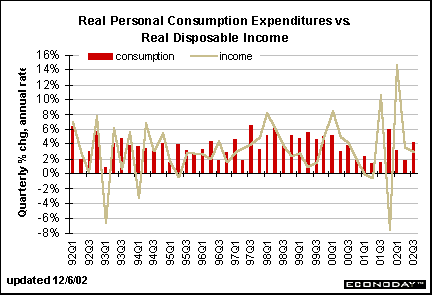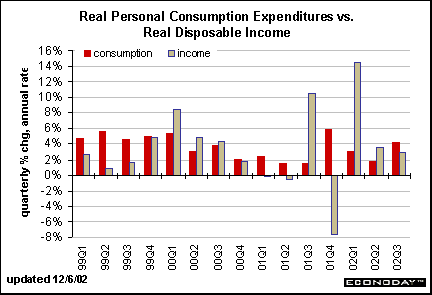
Long Term Perspective
Typically, consumers increase spending in direct proportion to gains in disposable income. Since 1996, spending has outpaced income, as consumers felt wealthier from stock market gains and housing appreciation. Notice how the gap widened in 1998 and 1999. It didn't narrow very much in 2000 even though the stock market headed south and consumer wealth stopping increasing exponentially! Income growth finally outpaced spending in 2001 and early 2002.

Short Term Perspective
For two straight quarters, income expanded more rapidly than consumption expenditures; this changed in the third quarter as consumer spending on motor vehicles surged to take advantage of favorable incentives. Even though spending surpassed income in the third quarter, the personal savings rate is much higher than a year ago indicating that consumer balance sheets are in relatively decent shape.



Real GDP vs. Final Sales •
Real Consumer Spending vs. Real Income •
Debt Burden vs. Savings Rate

Business Fixed Investment vs. Net Cash Flow
•
New Orders •
Housing Starts vs. Mortgage Rates

Merchandise Exports vs. Trade Weighted Dollar •
Merchandise Imports vs. Trade Weighted Dollar
|